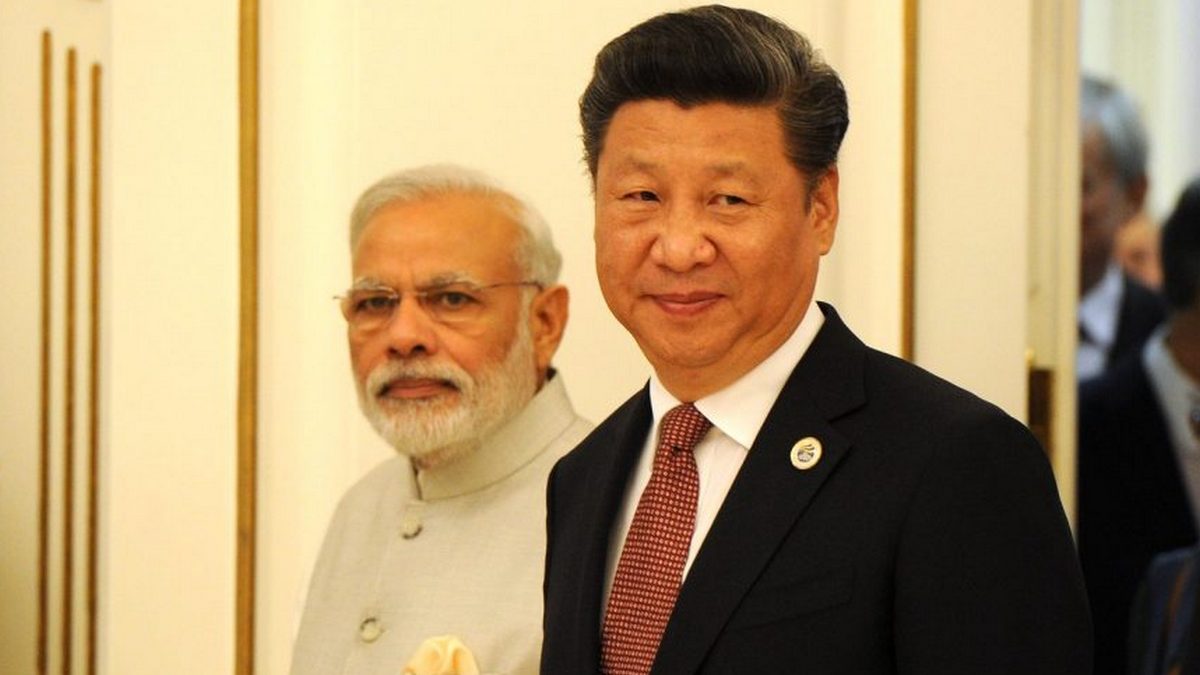China scolds India for ‘far-fetched’ app bans
Chinese government officials and businesses want to see the new Indian bans on Chinese apps reversed, but Modi’s move is popular among Indians seeking retribution for the lives lost on the Himalayan border.

China is firing back at the Indian government for banning 59 Chinese apps, most notably ByteDance’s globally successful TikTok, on Monday.
India’s Department of Telecommunications (DoT) ordered the removal of TikTok, WeChat and other apps from domestic marketplaces, threatening legal action if telecom operators and internet service providers did not comply. The order was not entirely effective: Many of the listed apps remain available for download, and companies are now forced to find creative ways to make already downloaded apps unusable.
Foreign Ministry Spokesperson Zhào Lìjiān 赵立坚 responded to the ban on Tuesday by urging “practical cooperation” and assuring mutual benefit if the Indian government protects “the legitimate rights and interests of…Chinese businesses.” China’s Indian embassy released a statement blasting India’s actions, claiming that the new ban “selectively and discriminatorily aims at certain Chinese apps on ambiguous and far-fetched grounds.” Despite China’s bans on tens of thousands of global websites and apps, the statement even said that India’s actions may violate WTO rules.
The head of TikTok India, Nikhil Gandhi, released a statement on Tuesday underscoring TikTok’s compliance with Indian authorities as well as the app’s centrality to India’s online culture. Per NDTV:
TikTok continues to comply with all data privacy and security requirements under Indian law and have not shared any information of our users in India with any foreign government, including the Chinese Government. Further if we are requested to in the future we would not do so. We place the highest importance on user privacy and integrity.
Gandhi’s response is reminiscent of Huawei executive Rén Zhēngfēi 任正非, who said in an interview with CNBC that “even if we were ordered to, Huawei would still not install backdoors.” In India and elsewhere, governments have greeted claims of distance between Huawei and the Chinese government with skepticism.
Huawei, too, has faced scrutiny from India’s government, which remains divided on whether it should follow America’s lead and designate the Chinese company’s 5G kit as a national security threat. India’s DoT allowed the telecom giant to participate in 5G trials in December, but souring ties will not help their bid. Despite rolling out the most affordable and effective 5G network, the rapid chilling of China-India relations may be a bad omen for Huawei.
Directly after the deadly border dispute in the Galwan Valley, millions of Indians downloaded an app called “Remove China Apps,” which does exactly what you’d expect. While the app was quickly taken down, its brief popularity goes to show the grassroots support for this new regulation.
Many Indians, particularly those who already believed that TikTok was host to culturally corrosive content, were happy to see it go. The head of India’s National Commission for Women, Rekha Sharm, said “Mission accomplished” and thanked Modi for his decisive action against the app that she viewed as “objectionable.”
Even Prime Minister Narendra Modi himself joined the anti-China mood by deleting his Weibo account and all 115 of his posts from the last five years.
On Twitter, the hashtag #digitalairstrike is trending with memes and commentary that celebrate the ban (the Economic Times did a good job gathering the hits).Many Indian internet users had been hoping for this sort of revenge after nationwide indignation and embarrassment over the deaths of 20 Indian soldiers on the Himalayan border.
In order to survive this sweeping wave of nationalism, Indian startups with Chinese funding have been playing up their Indian-ness and sweeping their China ties under the rug.
As for India’s TikTok stars, reactions were mixed. Some have joined in a migration to Instagram by using their last hours on the app to post their new handles. Many of these stars owe their rise from rags to riches to TikTok and lament its disappearance. One famous user known as GP Muthu expressed extreme disappointment. “This is only an entertainment platform and you can distract yourself from stress,” the carpenter-turned-celebrity remarked. “I am very sad.”
All apps involved will see a revenue drop, but for TikTok especially, the loss of growth potential is tremendous. Before the ban, India was host to TikTok’s largest user base of any nation. According to Sensor Tower data from April, the country was responsible for 611 million total downloads — 30% of the app’s downloads globally. What’s more, TikTok India was in the midst of a $1 billion investment project in the nation where it is now illegal.
When TikTok faced a similar ban last May, its parent company, ByteDance, said in a court filing that it was losing $500,000 for every day the app remained off the Indian market. Losses are bound to be even greater this time around, and ByteDance is probably keen to cooperate with New Delhi’s demands.
While TikTok found its way out of the last ban in about a week, nothing is guaranteed. As anti-China fervor spreads throughout India, it remains to be seen if it can pull such a feat off a second time around.






